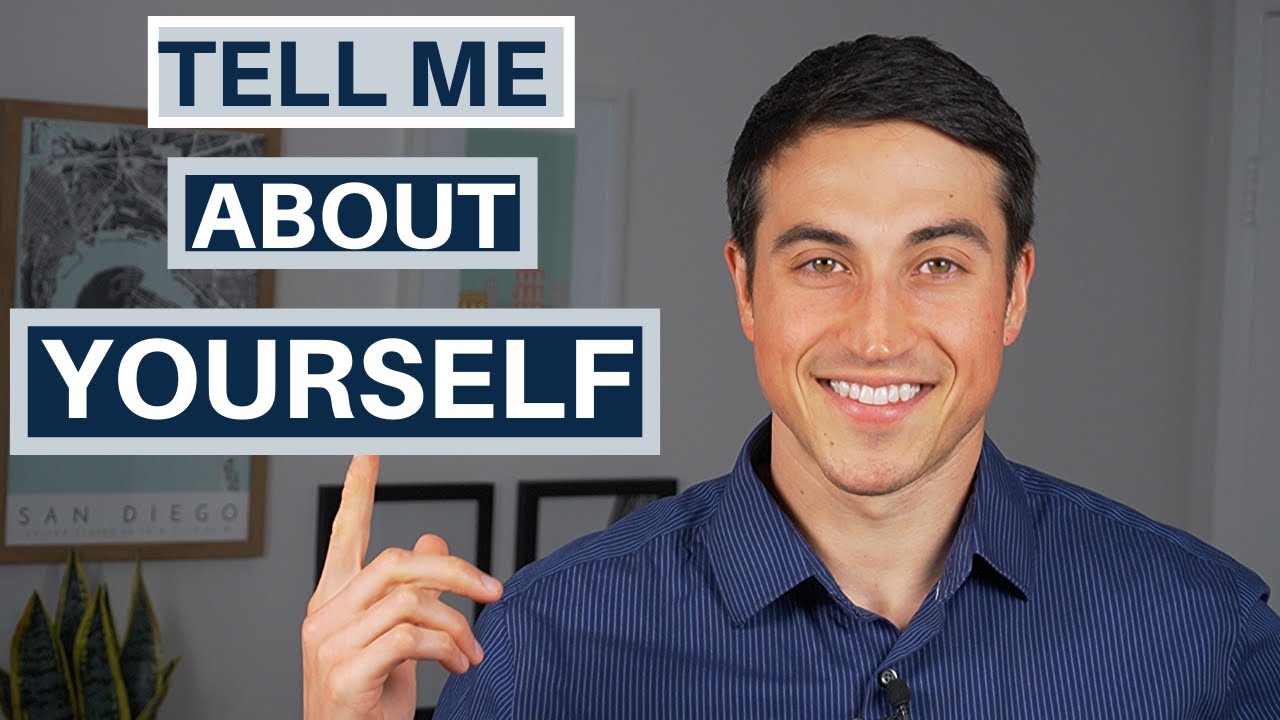
Tell Me About Yourself – How To Answer This in a Real Estate Interview

Picture this:
You step into a commercial real estate interview, the interviewer walks in, looks quickly over your resume, and then says to you, “So…tell me about yourself.”
Gulp.
How do you answer the question?
And what’s the right thing to say here?
In this article, let’s talk about how to answer the “Tell me about yourself” question in a commercial real estate interview, and a three-part framework you can use to pass this test with flying colors.
If video is more your thing, you can watch the video version of this article here:
Remember, It Isn’t Personal
Interviewing can be a seriously nerve-wracking process.
And one of the most common, open ended, and stress-inducing questions is the dreaded “Tell me about yourself” question that plagues interviewees in all industries, real estate included.
But in all industries, real estate included again, one thing to note up front is that this is not a personal question.
Yes, real estate is very relationship-based, but what you like to do on the weekends is far less important than what you can bring to the table as an employee in the role you’re interviewing for.
Make sure your answer is centered around professional achievements and information, rather than how you would answer this on a date.

How To Answer, “Tell Me About Yourself?”
With that all said, there are three parts to this answer I recommend including in a real estate interview. And together, these three parts let the interviewer know who you are, where you’ve come from, and where you’re looking to go in the future, all three of which directly affect the employer and whether or not they think you could be the right fit for the position.
Let’s start with part number one.
Talk Through Where You Came From & What You’ve Done
To set the stage to describe yourself as a professional, the first part of your answer should give a general background overview of where you came from, and the different positions you’ve worked in that are relevant to the position up to this point in your career.
This is the part where you can tell the interviewer where you’re from, where you went to college, and the jobs you’ve had since graduating.
Feel free to walk through your resume, explain the career-related decisions you’ve made up to this point, why you’ve left certain positions and taken others, and the specific professional experiences you’ve had that make you a solid fit for the role.

Make sure to do your research on the company and the role beforehand, as well. This way, you can highlight the experiences you’ve had that can be applicable to the role and firm you’re trying to work for, and you can also make sure to leave out the things that likely aren’t going to be helpful or relevant for your future employer.
If there is a gap on your resume, you left a company after a very short period of time, or any other potential red flags on your resume, this is also a great opportunity to explain those things in more detail and proactively tell your side of the story.
Talk Through Why You’re Looking For a New Job
Now the second part of your answer to this question, which the last point leads directly into, is why you’re looking to make a transition into a new job right now.
When explaining this, it’s extremely important to make sure to place the vast majority of the emphasis on what you’re moving towards, rather than what you’re moving away from (or for some people, furiously trying to escape).
This means that if you have a boss you can’t stand or you’re working hours that are borderline sadistic, this is not the time to go smack talking your co-workers or talking about how you want your Netflix time back. Focus on where you want to go, rather than what you want to leave behind, and you’ll be in good shape here.
For example, if you’re applying for an acquisitions role and you’re currently in asset management, this is a great opportunity to talk about what you’ve learned about acquisitions during this time, and how you’ve taken that knowledge to intentionally pivot your career in that direction.
You can also talk about how your current role has prepared you for the position you’re applying for in a unique way, and how you can bring a fresh perspective to the role you would be taking on.
Talk Through Where You’d Like To Go In The Future
Finally, the last thing I recommend doing here to wrap up your answer is talking through where you’d like to go in the future.
And hopefully, if you’re interviewing for the right job, this company is somewhere you can see yourself long-term.
Even if it’s not specific to the company itself, why is the role you’re interviewing for a good fit for your ultimate goals in the real estate industry?
For example, if you’re applying for a job in acquisitions, you could talk about your long-term goal to lead an acquisitions team as the Chief Investment Officer, or your goal to cover a specific market the company currently operates within as a Vice President within the next 5-7 years.

This shows an employer you’re invested in the career path (and ideally the company) long-term, which is an absolute must for employers to hear at many points during the interview process.
Replacing an employee is extremely expensive for real estate firms, and the last thing an employer wants is to hire a short-term fix that may only stay for a few months to move to a different part of the industry, or even worse, leave the real estate industry altogether.
The more you can communicate your long-term investment in the role and career path, the better you’ll show in the interview, and the more interested your interviewer will be in you as a potential hire for the firm.
How To Tell Your Own Story in a Real Estate Interview
Overall, the “Tell me about yourself” question is really an opportunity for you to tell your story, how you got to where you are today, why you’re a great fit for the role, and where you hope to help the company go in the future.
The employer is looking to hire a competent professional to add to their team because they need help.
And with that in mind, think about how you can answer this question to position yourself as the best solution to the problems they need solved – almost an “Easy Button” that can be used to make their operations run more smoothly, increase revenue, and grow because they hired you.
For more tips and strategies for interviewing and the job application process, check out the How To Land a Job in Private Equity Real Estate course on our Courses page.
And if you’re looking for more individualized, personalized guidance on your own unique situation to break into the real estate industry or land your next role, make sure to check out the full Break Into CRE Academy program, which includes one-on-one, email-based career coaching to help you every step of the way.
Good luck in the interview process!


